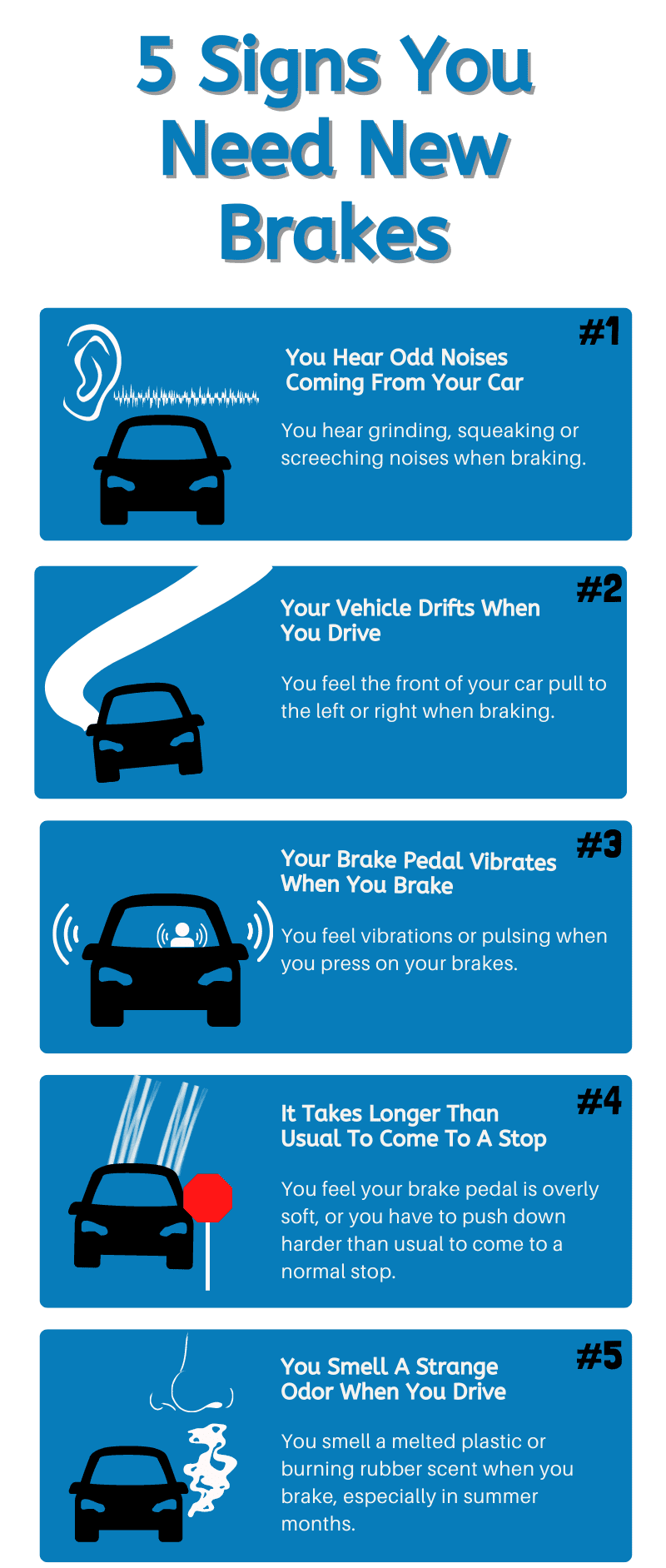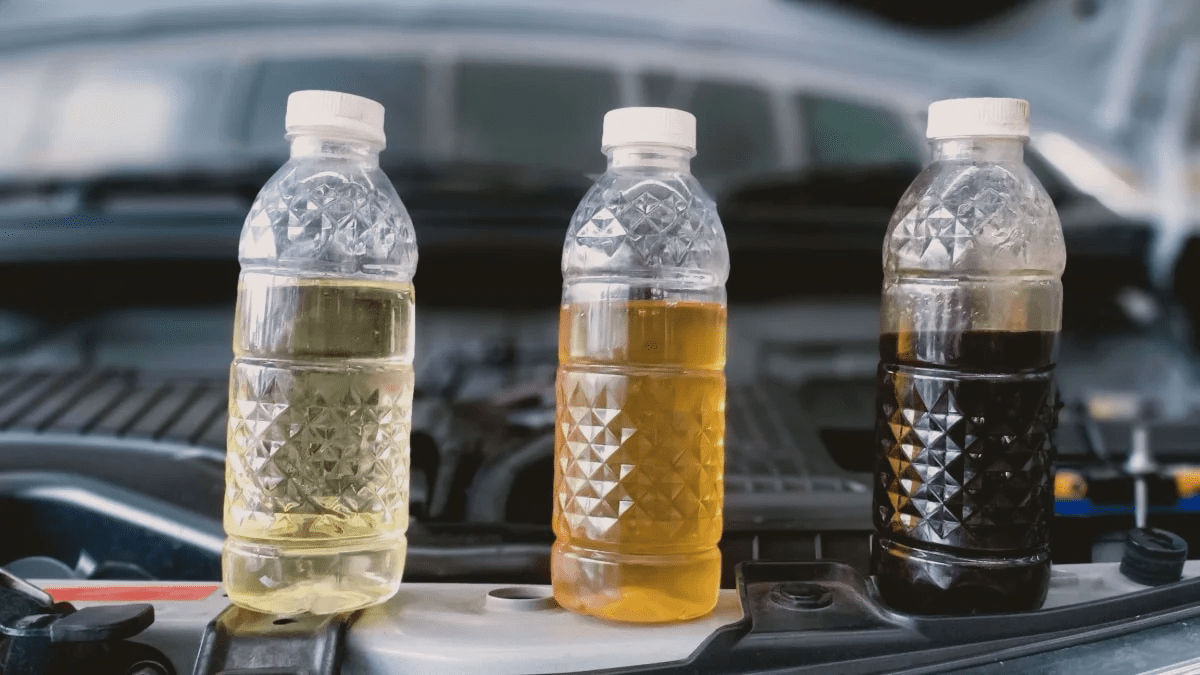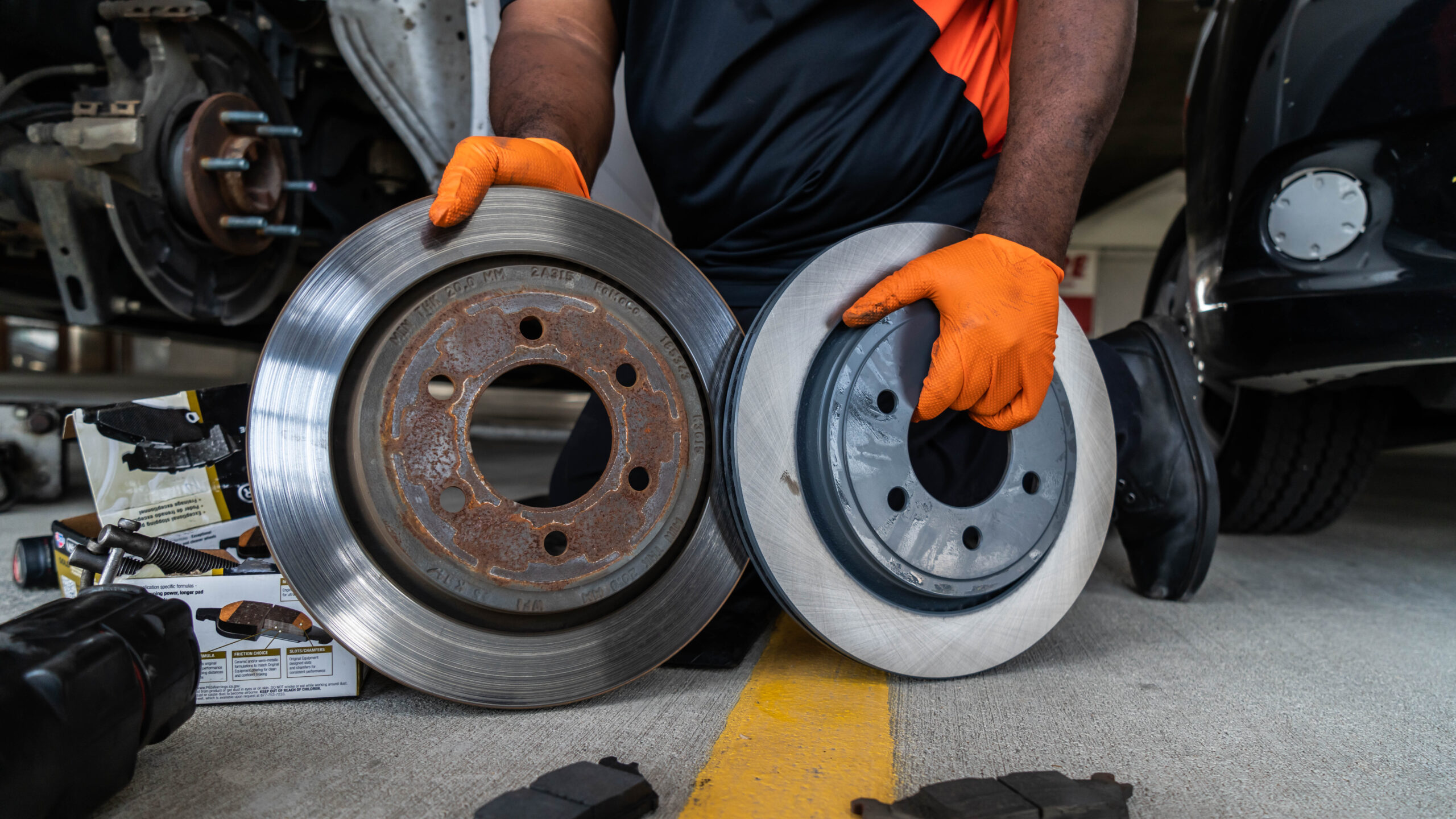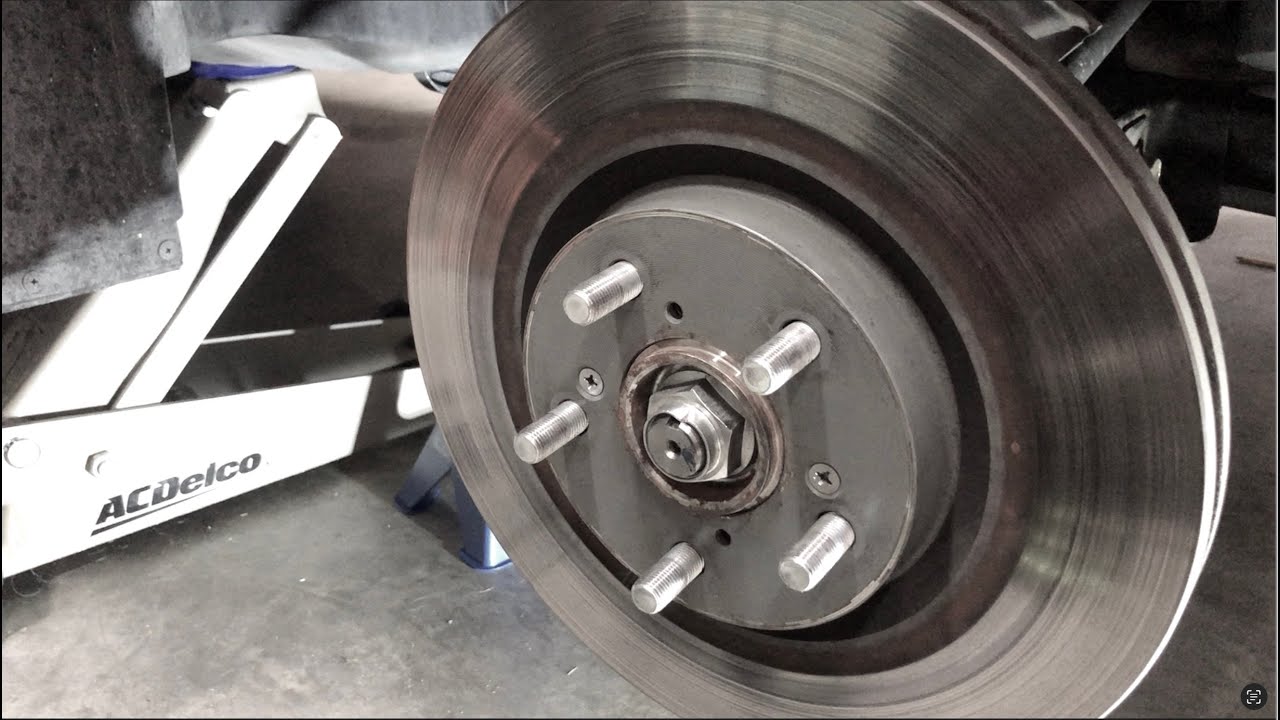Table of Contents
Don’t Risk Your Safety—Learn to Spot Brake Problems Before It’s Too Late!
1. Why Brake Health is Critical ⚠️
Your brakes are your car’s most vital safety system. Ignoring warning signs can lead to catastrophic failure, accidents, or costly repairs. According to the NHTSA, brake-related issues contribute to 22% of car crashes. Let’s break down the 5 key signs your brakes are failing and how to respond.
2. The 5 Warning Signs 🔍

1. Squealing, Grinding, or Screeching Noises
- What it means:
- Squealing: Worn brake pads (metal indicator tabs rubbing against rotors).
- Grinding: Pads fully worn—metal-on-metal contact damages rotors.
- How to react:
- Immediately replace pads and inspect rotors for grooves.
- Avoid driving until fixed—grinding can warp rotors (200–200–500 repair).
Pro Tip: Use ceramic brake pads for quieter, longer-lasting performance.
2. Longer Stopping Distances
- What it means:
- Worn pads, air in brake lines, or failing ABS.
- Test it: On an empty road, brake firmly at 30 mph. If stopping feels sluggish, act fast.
- How to react:
- Check pad thickness (replace if <3mm).
- Bleed brake lines to remove air bubbles.
- Test ABS functionality.
3. Vibrations in the Steering Wheel or Brake Pedal
- What it means:
- Warped rotors from overheating (common after aggressive braking).
- Uneven pad deposits creating hotspots.
- How to react:
- Resurface or replace rotors (150–150–300 per axle).
- Install slotted/drilled rotors for better heat dissipation.
4. Brake Warning Light Illuminates
- What it means:
- Low brake fluid, ABS malfunction, or pad wear sensor triggered.
- How to react:
- Check fluid level (between MIN/MAX marks). Top up with DOT 3/4 fluid.
- Scan for ABS codes with an OBD-II scanner (30–30–100).
- Replace fluid if it’s dark or contaminated.

5. Fluid Leaks or Puddles Under the Car
- What it means:
- Brake fluid leaks from damaged hoses, calipers, or the master cylinder.
- Signs: Soft/spongy pedal, fluid near wheels.
- How to react:
- Do NOT drive—leaks can cause total brake failure.
- Inspect hoses and connections. Replace cracked lines (50–50–200).
3. What to Do in an Emergency 🚨
If your brakes fail while driving:
- Stay calm and pump the pedal to build pressure.
- Downshift to use engine braking (manual transmission).
- Engage the parking brake gradually to avoid skidding.
- Steer to safety—use guardrails or grass to slow down.
4. Preventative Maintenance Tips 🔧
- Check pads/rotors every 12,000 miles.
- Replace brake fluid every 2–3 years.
- Avoid riding the brake pedal—overheating warps rotors.
- Listen for changes—unusual sounds = early warning.
Pro Tip: Use brake rotor grease on caliper pins to prevent seizing.
5. When to Call a Professional 🛠️
- ABS or dashboard warnings persist after basic fixes.
- Pedal sinks to the floor—master cylinder failure.
- Pulsation persists after rotor resurfacing.
Final Thoughts 💡
Your brakes are non-negotiable. Address issues immediately—even minor symptoms can escalate. Regular inspections and quality parts (e.g., Bosch, Brembo) save lives and money.
🚗 Share this guide to help others stay safe on the road! 🚗
Expand Your Automotive Knowledge 📝
Explore 500+ Free Expert-Curated Guides
🚗 Learn New Skills
From basic maintenance to advanced repairs — clear, actionable tutorials for every skill level.
🌍 Access Anywhere
Mobile-friendly guides with HD visuals. No downloads required.
- Guides & Tutorials
- Car Maintenance 101
- Diagnostics & Troubleshooting
- Seasonal Maintenance
- Budget-Friendly Repairs
- Electrical Systems Guide
- Car Safety & Reliability
- Tools & Product Reviews
- Routine Maintenance
- Car Modifications & Upgrades
- Buying/Selling Guides
- Eco-Friendly Car Care
- Advanced Repairs
- Car Laws & Compliance
- Emergency Repairs
- Future Car Tech



